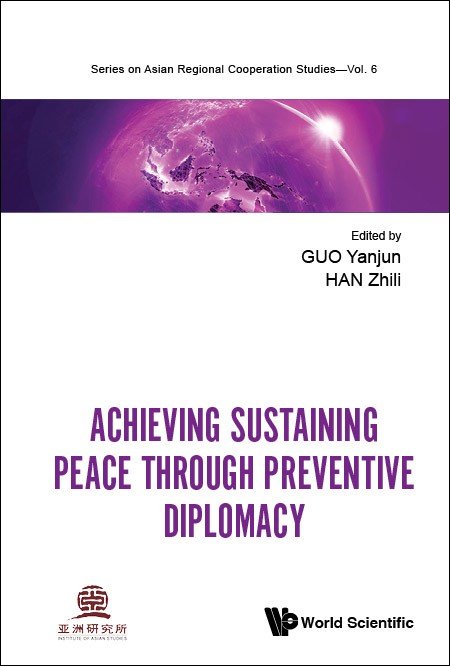System Upgrade on Tue, May 28th, 2024 at 2am (EDT)
Existing users will be able to log into the site and access content. However, E-commerce and registration of new users may not be available for up to 12 hours.For online purchase, please visit us again. Contact us at customercare@wspc.com for any enquiries.
Preventive diplomacy constitutes an important part of international conflict resolution mechanisms. The countries in the Asia Pacific region have the political will to use preventive diplomacy to address the needs for sustaining peace and security. The challenge is to find approaches compatible with the consensual norms, and operational for tackling conflicts in the regional context. Structured on this thematic challenge, this book aims to present new approaches and practices of preventative diplomacy, inspired by diplomatic innovation of Asia-Pacific countries and around the world, such as adaptive peace approach, continental approach, dominant coalition, and new leadership in peacebuilding, etc., and takes account recent literature on normative issues relating to preventative diplomacy, such as international rule of law, normative entanglements and evolution, the international, impartial and independent mechanism, the evolution of the norm against child soldiers, the implementation of the woman peace and security agenda, and the role of Jus Post Bellum in the UN peace operations. It also examines how geopolitical competition and the recent covid-19 crisis impact the security of the region, and explores the connection between the Belt and Road Initiative and sustaining peace of the region.
This book is a valuable reading on the recent development of approaches and norms of preventative diplomacy and how they can contribute to sustaining peace of the Asia Pacific. It can be used as a text for college students, researchers, and practitioners in the disciplines of international relations, political science, security studies, policy studies, diplomacy, and social issues.
Sample Chapter(s)
Preface
Chapter 1: Cooperation Among International Organizations and Sustaining Peace
Contents:
- Approaches and Practices:
- Cooperation among International Organizations and Sustaining Peace
- The Function of the Dominant Coalition in Controlling Violence in Timor-Leste
- An Adaptive Peace Approach to Preventive Diplomacy for Achieving Sustaining Peace
- Sustaining Urban Peace: Theory and Practice for New Leadership in Peacebuilding
- A Continental Approach to Conflict Prevention: An Analysis of Preventive Diplomacy Initiatives in Africa
- Preventive Diplomacy in the COC for Sustaining Peace in the South China Sea
- Confidence Building, Early Warning and Fact-Finding in Sino-ROK Disputes: Can Preventive Diplomacy work in a Bilateral Context?
- Norms and Principles:
- International Rule of Law and Sustainable Peace: Contributions of the UN and China
- Normative Entanglements and Evolution: Prevention, Peacebuilding, SDG-16 and Human Security in the Asia-Pacific Region
- The International, Impartial and Independent Mechanism: Opportunity and Challenges
- The Evolution of Norm against Child Soldiers: Child Protection under Intrastate Armed Conflicts
- Accelerating the Implementation of WPS: An Assessment of China's Implementation of the Strategic Goal of Women and Armed Conflict in the Last Five Years
- The United Nations Peacekeeping Operations vs. Jus Post Bellum
- Opportunities and Challenges:
- The Connection between the "Belt and Road Initiative" (BRI) and the International Peace Agendas
- Geopolitics of Asia Pacific and Peacebuilding
- The COVID-19 Crisis and Human Mobility
Readership: Academics, policymakers, professionals, undergraduate and graduate students, interested in preventive diplomacy, international relations, diplomatic innovation of Asia-Pacific countries, geopolitical competition, impact of covid-19 crisis on the security of the region, and connection between the Belt and Road Initiative and sustaining peace of the region.




